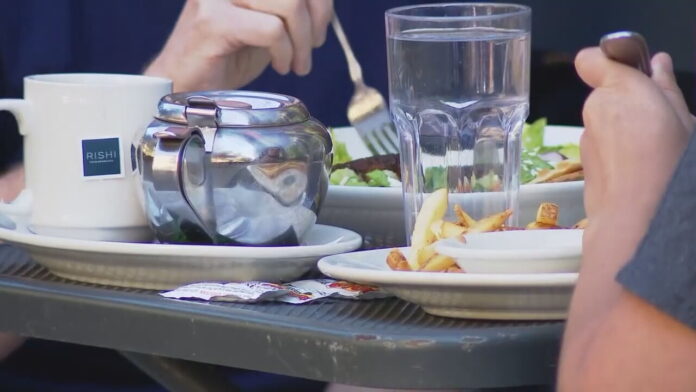The Aftermath of the Government Shutdown: A Deep Dive into D.C.’s Restaurant Crisis
Introduction to the Crisis
The familiar buzz of bustling restaurants in Washington, D.C., has muted since the recent federal government shutdown. Although the government has resumed operations after a historic 43-day hiatus, the lingering effects are visible across the city’s dining landscape. Local restaurants that once thrived are facing the daunting reality of permanent closure, as the economic shockwaves from the shutdown continue to reverberate.
Local Business Casualties
In Dupont Circle, beloved establishments such as Trio Bistro, Pupatella, and the Fox & Hounds Lounge now stand closed for good. These closures have not only left empty chairs in their respective dining rooms but have also created a void in the community’s social fabric. Owners attribute the shuttering of their enterprises to a combination of lease difficulties and business restructuring, with many pointing specifically to a drastic decrease in patrons during the shutdown as a decisive blow to their viability.
Impact on the Broader Economy
The repercussions of the shutdown extend far beyond individual restaurants. According to the Congressional Budget Office, the entire U.S. economy suffered a staggering loss estimated between $7 to $14 billion. In D.C., the restaurant industry — valued at approximately $8 billion — faced unique challenges. The combination of decreased tourism and a dip in regular customer traffic created a perfect storm, particularly for establishments that relied heavily on the spending of federal employees and visitors.
The Strain on Local Workers
As federal workers missed multiple paychecks due to the shutdown, the impact was felt acutely in restaurants around the city. Reports indicate that approximately 1.25 million federal employees suffered financially, leading to empty lunch counters and reduced dinner reservations. With a demographic that traditionally supports local eateries, the sudden drop-off translated into significant revenue losses for numerous businesses. The once-busy dining spots now find themselves struggling to bring back patrons as the city’s workforce slowly regains its financial footing.
Concerns from Local Leadership
D.C. Councilmember Charles Allen, who is actively involved with the Council’s Committee on Business and Economic Development, expresses deep concern for the long-term implications for small businesses. He underscores the profound effect that the closures have on working families, emphasizing that the ability to afford basic necessities, such as food, is at stake.
“For working families, that is hard — literally, we are talking about people’s ability to put food on the table,” Allen remarked, highlighting the severity of the situation. “It’s really damaging, and the job losses are what I think are outside the bounds of law.”
His words resonate deeply in a city where many small businesses form the backbone of the local economy.
The Road to Recovery
Despite the government doors reopening, many restaurant owners remain skeptical about immediate recovery. Several have indicated that the path back to profitability is daunting and, for some, may even be impossible. With consumer confidence still fragile and financial reserves depleted, the challenge of restart feels overwhelming.
Local leaders are urging the city to implement support systems that could assist struggling small businesses, especially those affected by the nearly six weeks of financial hardship. If action is not taken, there is a genuine fear that more beloved establishments could follow suit into oblivion.
The Personal Impact on the Community
The story of D.C.’s restaurant landscape amidst the shutdown isn’t merely a business tale; it’s a narrative filled with personal stakes. The closures represent dreams dashed for many owners who invested not just capital but their livelihoods and aspirations into their establishments. Families who worked together in these restaurants now face uncertainty, while patrons who frequented these beloved spots feel the loss of familiar places that fostered community ties.
In the wake of the shutdown, Washington, D.C.’s restaurant industry stands at a crossroads, where the decisions made today could shape the culinary landscape for years to come. The hope for a rebound remains, but only time will tell how resilient these local businesses—and the communities they serve—will prove to be.
